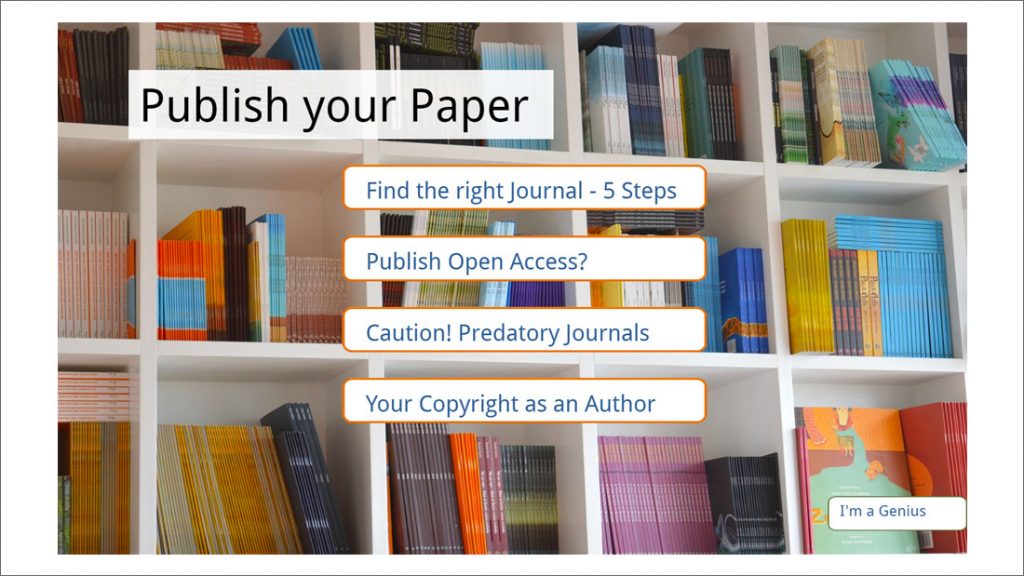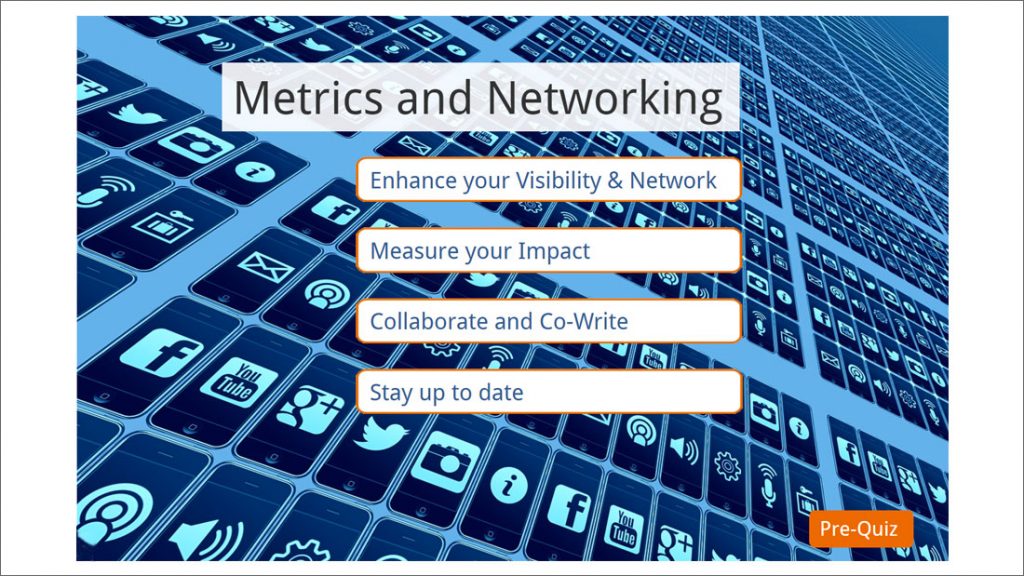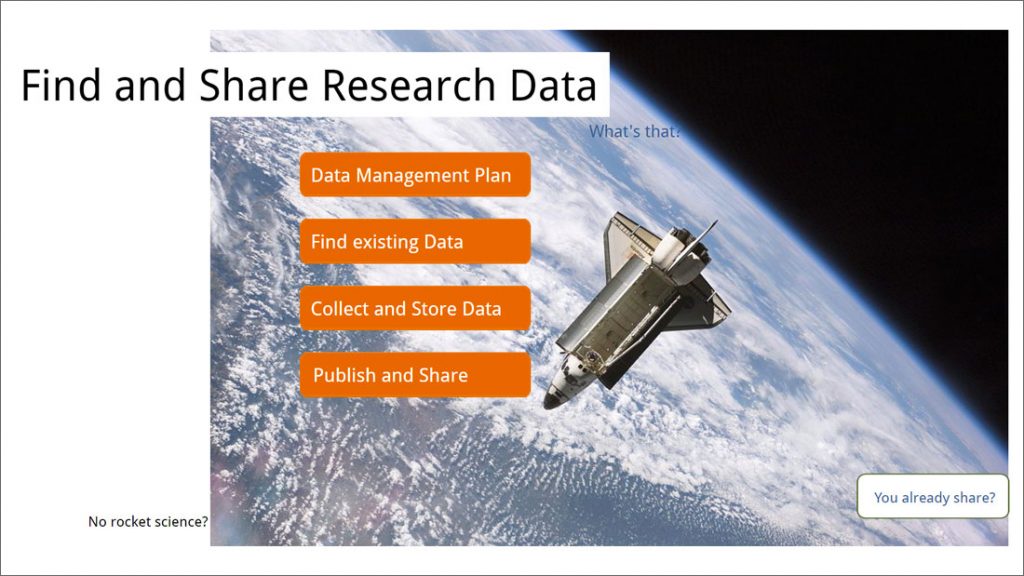Open Educational Resources: How the EconBiz Academic Career Kit Trains Open Science Skills
How could libraries help researchers in training open science and other research skills? The ZBW offers an Academic Career Kit. It comprises the three subjects publishing, metrics and networking and research data management. The three toolkits are available as re-usable open educational resources.
by Nicole Krüger
Researchers today need more and more skills that are not directly related to their discipline – and which are often not taught in the course of studies. Questions on publishing a paper, increasing the visibility and calculating the metrics of your research, options of networking, and the storage, documentation and sharing of research data are among them. The range of tools and platforms, as well as the requirements of journals and third-party funders is difficult to oversee, especially for early career researchers (ECRs).
The new Academic Career Kit in EconBiz developed by the ZBW is an open educational resource (OER) and takes up these questions in a playful manner. It compiles the topics in three interactive toolkits for PhD students and ECRs in economics and social sciences.
Toolkit No. 1: Publish your paper
The aim of this toolkit is to support researchers in finding a journal that publishes their paper and optimally promotes the visibility of their research. How can they find a journal with a good journal ranking score that is perceived in the respective research community? How can they find a journal that perfectly matches their topic?

It is important to avoid predatory – or fake journals – and the toolkit shows how to detect them. Predatory journals lure with the promise of publication in shortest time and for little money, but do not keep their promise of a peer review for quality control. They publish fake research or good research in a no-reputation journal just in order to gain money. Being connected to them can damage researchers’ careers. What they might want to consider, however, is publishing open access. In the toolkit they learn how to find high quality open access journals – and what rights they may have for a secondary publication in open access, after having published in a subscription based journal.
Toolkit No. 2: Metrics and Networking
Being active in social media, like in Twitter and Blogs, is one way to reach a larger audience and to enhance a researcher’s impact. Other researchers will learn about their findings through these additional channels and in addition the public, policy makers, and the press.

In times of fake news and allegedly “alternative” truths – it becomes more important that academics take part in the public debate in social media. However, reaching out to other researchers might be their first priority. This can be done by optimizing their social media channels and following some tips. The toolkit shows several ways of how to get in touch with other researchers and discuss findings at an early stage in research networks, conferences, and in social media. It presents open tools for co-writing, online meetings, reference- and project management.
Toolkit No. 3: Research Data Management
The third toolkit addresses research data management. This topic is a burden for many in the research routine.

However, there is a lot in it for researchers, if they document, backup, and eventually share their research data. Their research data could be like another publication. It can get cited and will influence their metrics. Also, many journals and third party funders require the publication of research data – for the sake of transparency, quality control and synergy effects in research. In this toolkit, researchers can find materials and information on managing their own data – but also search portals, in which they can find high quality research data themselves. By this way they can profit from the work of others and make use of third party data sets.
Would you like to spread the word? The toolkits are OER!
Would you like to support researchers by re-using the toolkits? As they are OER – open educational resources, you can embed them into your local website. The toolkits were created with the open source materials of h5p and are under the license CC-BY. They may be freely used and changed with indication of the author’s name. You can embed the toolkits into your own website, by clicking the link “embed” below each of the three toolkits. Changes can be made to the toolkits, using the free h5p plugin for WordPress, drupal, or moodle. Here you can upload the toolkits and re-use them according to your own liking.
Author: Nicole Krüger is a librarian and MA in Philosophy. She designs the ZBW’s online offerings for information literacy and teaches seminar preparation courses at the University of Kiel. She has done work shadowing on the subject of information literacy in New York and is a member of the editorial staff of the Germany-wide portal Informationskompetenz.de.
Open Science in Canada: Grassroots Effort and a National Approach
This is a test if it is possible to change the english subtitle: Canada is...
